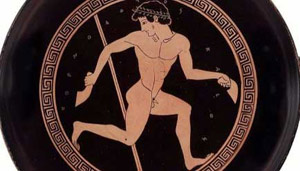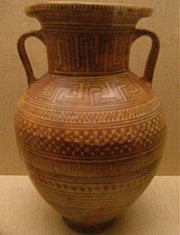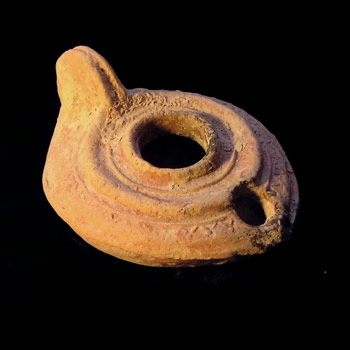The History of ancient Athens
From the Neolithic to the Bronze Age

The history of Ancient Athens dates back to 6,000 years ago. The first inhabitants of Attica (the wider area of Athens), of who we are aware, lived during the Neolithic Period (6,000-2,800 BC). They used to stay in caves located near the sea and their main occupations were hunting, fishing, farming and later on they started sailing and making pots. The first settlement must have appeared in Athens in 4,000 BC. That period was succeeded by the Bronze Age (2,800-1,100 BC) which is divided into two periods; the Early and the Middle-Late. During the Early Bronze Age which lasted 800 years, new people appeared in the coastal areas of Attica known as Indo-Europeans and they were merchants or marines who used to settle by the ports. During the second period (Middle and Bronze Age) which lasted until 1,100 BC including the Mycenaean period (1,600-1,100 BC), the Ionian tribe, appeared in Attica.
Geometric and Archaic Periods

After the collapsing of the Mycenaean civilization the Geometric Period (1,100-700) began. The main characteristics of the Geometric Period are, on one hand, the ruling of members of the nobles and rich landowners who composed the class of the best citizens and on the other hand the commercial flourishing which resulted in the creation of new social classes composed of merchants and craftsmen. The next years are called Archaic Period (700-500 BC) and the foundations of the glorious Athens have been set with the development of external commercial relations.
Ancient Athens is the European city with the most impressive and most interesting changing during the years 800-500 BC. Various alterations took place slowly and, as centuries went by, Athens grew in a powerful city as far as its commercial activities are concerned. Its ceramics dominated in foreign markets and Athenian ceramics were established internationally in the 6th century BC, when the first Athenian coins were cut. Athens exported also amphora of oil to other Mediterranean countries which probably was produced by the richest landholders of the town. In 620 BC, a new written law was introduced in Athens according to which murderers should be judged and published in public. This was a progressive measure through which family retaliations were prohibited.
Solon's Laws

Some years later, in 594 BC, Solon took over the governing of Athens. He was an aristocrat and a great poet, as good as the other two ancient poets that lived in that period, Alkaios and Sappho. Having travelled a lot in Cyprus and Egypt, he was an open minded man who introduced a set of vital reformations in Athens. The most important of them was the "sisachthia" which cancelled all the debts of the poor Athenians. What is more, he abolished lending which resulted in the enslavement of the debtor, if he could not clear off his debts. He prohibited any agricultural goods exportation with the exception of the olives and in the field of Law he established the right to appeal.
Solon's laws are a landmark in the history of ancient Athens. The second landmark of that period is the establishment of Panathenaea Festival which was celebrated with gorgeous events including song, music and sport contests and processions around the Acropolis. It was a Festival in which all Athenians took part and it was devoted to the goddess Athena.
The Archaic Period includes Peisistratus's Tyranny (561-527 BC) during which the Athenian economy had a great amelioration and a lot of public works took place such as the construction of public buildings and the creation of a large library. In the end of the 6th BC century, an important reformation was carried out by Cleisthenes in 508-507, which set the most important founds for the democratic constitution. Cleisthenes divided the citizens of Athens into ten tribes the members of which should elect their representatives to the administrators of the city.
Pericles and the Golden Age

The next century is known as the Golden Age (500-400 BC) and the leader of it was Pericles thus it is often called as Pericles's Golden Age. The glorious era began with the victory of Athens during the Persian Wars (490-479 BC). In 490 BC Miltiades defeated Persians in the Battle of Marathon thanks to his excellent concept for the combat disposition of his warriors.
In 480 BC, the Persian general Xerxes defeated Athenians. Continuously, Themistocles managed to drive him to a naval battle near Salamina island, where the Greeks demolished the Persian fleet (Naval Battle of Salamina). Two years later, Themistocles fortified Athens and in 476 BC General Cimon built the Long Walls reinforcing the city of Athens.
"You may hit me but do listen to what I want to tell you"
That sentence was said by the general Themistocles to the Spartan admiral Evriviades during the meeting before the Battle of Salamina. The admiral insisted on heading the battle with the Persians close to Corinth Isthmus so as to escape easily in case of a defeat. Themistocles disagreed with him and Evriviades raised his hand in order to hit Themistocles who then said "You may hit me but do listen to what I want to tell you". Finally, Themistocles persuaded the Greeks to fight near Salamina island because it was a narrow area that would make it difficult for the big Persian ship to move, contrary to the greek ones that was small and flexible.
During that period, a talented man, who envisioned Athens as an international cultural centre, emerged within the town, named Pericles. He was a politician, a general as well as an orator. Taking advantage of the greek victories over the Persians, he transformed the Delian League into Athenian Hegemony transferring the treasury from Delos island to Athens, in 454 BC. The Naval of Athens reached the zenith of its prosperity thanks to Pericles who carried out several expanding battles in order to ensure the interests of its town. At the same time, he took special care for the flourishing of arts, literature and sciences and managed to make Athens the most important cultural city of the ancient world. What is more, a lot of monuments were built during his leadership, including the rebuilding of the Parthenon in the years 449-432 BC. Pericles was strongly supporting Democracy and helped poor people get more rights against the aristocracy (even though he was an aristocrat).
The end of the Golden Age

The Golden Age ended due to the Peloponnesian War (431-404) which resulted in the defeat of Athenians. Pericles died in 429 BC during the War, due to the plague that had spread in his town.
The following centuries are known as Hellenistic Period (400 BC – 400 AD) and the 4th BC century starts with the fights of Athens against Sparta and Thebes for the domination of the mainland of Greece. Some kilometers to the north, a new Hegemony had risen, the Macedonians, under king Philippos and his son, Alexander the Great. They defeated the Greeks in the Battle of Chaeronea, in 338 BC. Greece was occupied by the Roman Empire in 146 BC. The roman general Sulla destroyed Athens in 86 BC. New buildings were erected again by the emperor Hadrian and Herodes Atticus during the 2nd AD century in Athens and, one century later, the Byzantine Period (330-1204 AD) began. The cultural decline of Athens started in 330 AD when Constantinople (Istanbul) was established as the capital of the Byzantine Empire, by the emperor Constantine the Great. In 392, the emperor Theodosius II started fighting against the ancient greek religion and the next emperor, Justinian abolished any philosophical school of Athens. Athens was nothing more than a small city of Byzantium until the 12th AD century.




